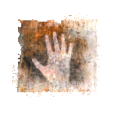Please wait a few moments while we process your request

NANIKI
Kalinago Barana (Sea) Stories & Conservation Project
Traditional knowledge research
Process :
It was agreed that all interviews with elders/community members would be recorded on audio and video (as long as the person is comfortable with that). The Karina Cultural Group team would accompany small groups of 3-4 youth participants and support the interview process.
Kalinago community protocols concerning traditional knowledge intellectual property:
It was noted that no community protocols exist for protecting Kalinago traditional knowledge and intellectual property. Nor mechanisms for the collective community to benefit from monetization of Kalinago heritage/traditional knowledge. A lack of trusted and accountable leadership and not enough initiative from national representation, was seen as related to this.
Oonya provided guidelines for researching and gathering traditional knowledge, using examples from other indigenous cultures to show:

Source: On-Screen Protocols & Pathways: A Media Production Guide to Working with First Nations, Métis and Inuit Communities, Cultures, Concepts and Stories. Prepared for ImagineNative, 2019.
Recording and Documentation of Indigenous Knowledge and Cultural Heritage:

Source: Researchgate.net, Hybridization of Indigenous Knowledge and Documentation of Intangible Cultural Heritage of Batticaloa, District of Sri Lanka: Significance of academic librarians’ role in the digital era. (Santharooban, Ramanan, Ravikumar, 2015)
Storage and communications:
It was agreed that with the work of the Karina Cultural Group as long standing leaders in the preservation of Kalinago culture, the group would hold the collected research and results of the workshop in trust for the community, digitally storing and making the collection accessible to community members.
With details of the project, this was communicated to community members, interviewees and elders as follows:
An orientation and interview preparation meeting was held with the complete group of participants on March 29, 2021. Marianna introduced the project and objectives. Oonya presented the process and importance of protocol and documentation. Kevin Dangleben prepared interview questionnaire sheets and helped to guide the youth in how to approach, interface and conduct an interview.
The research was divided into two categories below:
1. Research & Interviews:
2. Photographs of items or objects by the Karina Cultural Group team and youth:
It was agreed that all interviews with elders/community members would be recorded on audio and video (as long as the person is comfortable with that). The Karina Cultural Group team would accompany small groups of 3-4 youth participants and support the interview process.
Kalinago community protocols concerning traditional knowledge intellectual property:
It was noted that no community protocols exist for protecting Kalinago traditional knowledge and intellectual property. Nor mechanisms for the collective community to benefit from monetization of Kalinago heritage/traditional knowledge. A lack of trusted and accountable leadership and not enough initiative from national representation, was seen as related to this.
Oonya provided guidelines for researching and gathering traditional knowledge, using examples from other indigenous cultures to show:
- the role of digital archiving
- cultural and community protocol involved in traditional knowledge research
- what is considered Intellectual Property for rights and protection

Source: On-Screen Protocols & Pathways: A Media Production Guide to Working with First Nations, Métis and Inuit Communities, Cultures, Concepts and Stories. Prepared for ImagineNative, 2019.
Recording and Documentation of Indigenous Knowledge and Cultural Heritage:

Source: Researchgate.net, Hybridization of Indigenous Knowledge and Documentation of Intangible Cultural Heritage of Batticaloa, District of Sri Lanka: Significance of academic librarians’ role in the digital era. (Santharooban, Ramanan, Ravikumar, 2015)
Storage and communications:
It was agreed that with the work of the Karina Cultural Group as long standing leaders in the preservation of Kalinago culture, the group would hold the collected research and results of the workshop in trust for the community, digitally storing and making the collection accessible to community members.
With details of the project, this was communicated to community members, interviewees and elders as follows:
- These materials will be held in trust by the Karina Cultural Group - for community uses.
- Ownership of each recording or ‘property’, including photographs, remains with the source (name and date) which will be attached to the material at all times, sometimes appearing as “Retold by …(name and date)”
- Permissions to publish publicly (digital or print), or to share beyond the Kalinago community will be sought from the individual and the Kalinago Council.
- Noting: that the Naniki Project, nor sponsors, do not have any rights to these materials without due permissions.
An orientation and interview preparation meeting was held with the complete group of participants on March 29, 2021. Marianna introduced the project and objectives. Oonya presented the process and importance of protocol and documentation. Kevin Dangleben prepared interview questionnaire sheets and helped to guide the youth in how to approach, interface and conduct an interview.
The research was divided into two categories below:
1. Research & Interviews:
- Online literature review and document collection by Oonya
- Interviews with history experts by Karina Cultural Group team and Oonya
- Interviews with community members/elders by Karina Cultural Group team
and the youth (Oonya interviewed Gerard and Miranda Langlais)
2. Photographs of items or objects by the Karina Cultural Group team and youth:
- These are being collated and stored by the Karina Cultural Group
Oonya Kempadoo © 2021 FDL
Index:
- The Project
• Summary
• Background
• Foreword
• The Team
• Planning and Community Engagement - Traditional knowledge research
• Process
• Online literature review
• Interviews with history experts
• Interviews with community members/elders - Storytelling Workshop
• Day One
• Day Two
• Day Three
• Open Day - Monitoring and Evaluation
• Press coverage and feedback
• Conclusion and recommendations - Credits and Acknowledgments

